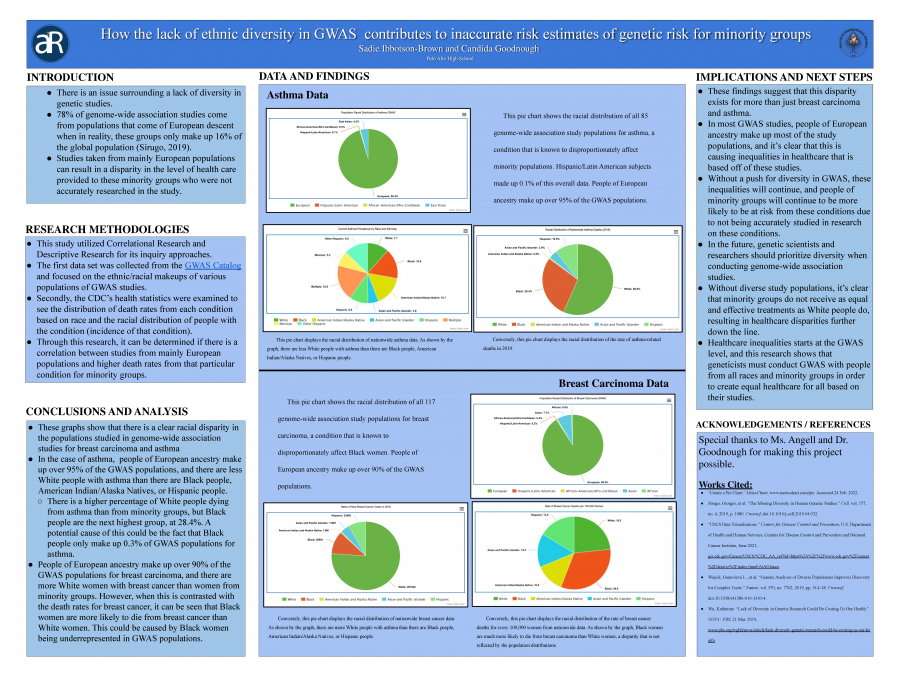Summary
Despite the great level of diversity that exists globally, most genetic disease studies are based on populations of mainly European ancestry. 78% of genome-wide association studies come from populations of European descent when in reality, these groups only make up 16% of the global population. This has negatively impacted members of minority (or non-European) groups because studies taken from mainly European populations can cause inaccurate or incomplete translation of research into public health policies, which results in a disparity in the level of health care provided to minority groups who were not accurately researched. Databases will be used to analyze the effects of asthma-chronic obstructive pulmonary disease overlap syndrome, because it disproportionately affects certain minority populations. These databases will include the GWAS catalog, which looks at the ethnic/racial makeups of various populations from GWAS studies, the Database of Genetic Variants, which provides information about specific genetic variants, and the CDC’s health statistics, which show the distribution of deaths from a particular condition based on race. Through this research, correlation and regression analysis will be utilized to see if there is a correlation between studies from mainly European populations and higher death rates from that particular condition for minority groups.

